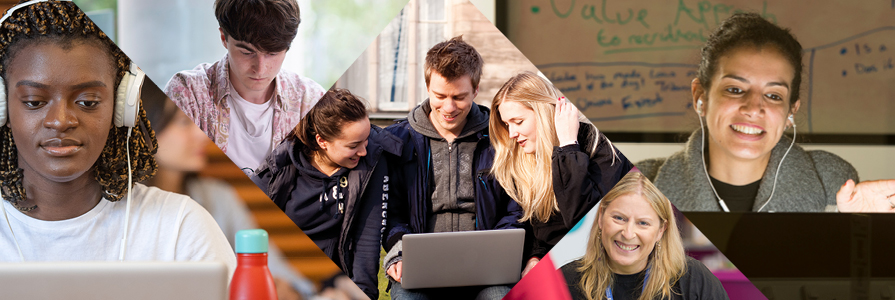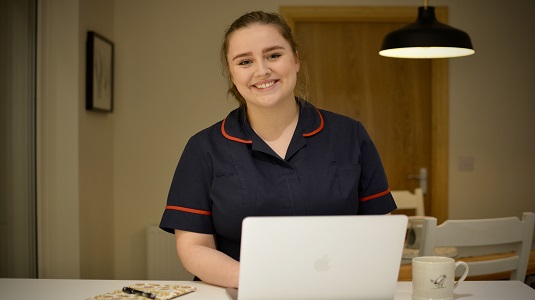SFC news published since 2018. See SFC archived content for earlier news articles.
One of almost 800 recipients of a fully funded place on one of the University of Aberdeen’s online short courses this year, school nurse Emily Rodger shares how she’s applying her studies in public health within her school community.

Using the Scottish Funding Council’s national Upskilling Fund, the University of Aberdeen has allocated almost 800 free places on online short courses in the past twelve months. Many recipients of the funded places have either been furloughed, made redundant, or are looking to transition out of industries with narrowing career prospects, such as the hydrocarbon energy sector.
But while the University’s use of the Upskilling Fund has supported local business and individuals negatively impacted by the pandemic, it has equally benefited those whose roles have been changed by it. For these people, the opportunity to upskill in their current work has been invaluable.
One such recipient is Emily Rodger, a School Nurse in Aberdeen. She’s now part way through her studies on the University’s online short course Public Health in Action. Emily spoke to the University about how she’s putting learning from the course straight into action in a role significantly altered by COVID-19.

“As a registered nurse, public health is really at the heart of what I do,” says Emily. “That was the case when I was working in a clinical setting in a pediatric hospital, and it’s absolutely the case now in my work as a school nurse. What COVID-19 has done is increase my appreciation of the need for the promotion of good public health practices in society, and I’ve got my own role to play in that. In that sense, the course really couldn’t be more relevant.”
Support from her employer has been key to Emily’s success so far on the course. “The school has allowed me to do my coursework during work hours because of its relevance to the job,” she says. “I’ve been setting aside time each afternoon to work on it, and then allocating a little extra time at the weekend, particularly for assessments.”
Although she acknowledges her work isn’t at the level of assessing the health needs of an entire country, Emily believes a lot of the principles she’s learning about can nevertheless be applied on a micro scale to a school population. “The course is drawing my attention to potential health inequalities in a school setting as well as the wider local community,” she says. “It’s also better equipping me to know what services people may need to be referred to and is giving me a better understanding of how different circumstances can affect people’s general health and wellbeing.
“In terms of COVID-19, while I’m not part of the frontline response, I’m doing my part at a school level, and that’s important because we’re at the forefront of crucial government discussions and decisions at the moment. The course has given me an appreciation of the challenges currently being faced by Public Health Scotland, and that in turn has given me the confidence to communicate effectively with them in my own day-to-day work.”
Emily adds that she had wanted to take on further study through her work, but it wasn’t financially viable at the time. So, the SFC funding came at just the right time: “Healthcare workers aren’t always paid substantially, and so being able to undertake further education on top of basic CPD isn’t always an option. The fact that I’ve been given a fully funded place has been invaluable. But even if I’d self-funded, being able to study a 12-week short course that gives me credits towards a real Master’s degree makes things more achievable, financially and in terms of time. I’m sure there are a lot of people out there with families, perhaps working shifts, who wouldn’t have time to commit to full-time on-campus study – and so this is a really attractive option.”
The fight against COVID-19 isn’t just taking place on the frontline. Through its use of the Upskilling Fund, the University of Aberdeen is ensuring that those involved or affected are supported with opportunities to upskill and reskill when it’s needed most.

